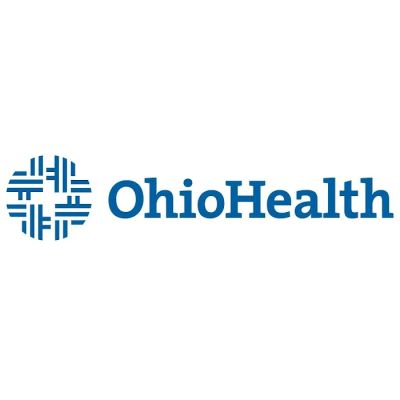How Nutrition Plays a Vital Role in Preventing Heart Disease
As we continue to learn more about heart disease and its widespread impact, it becomes increasingly clear that the food we eat plays a crucial role in either protecting or damaging our heart health. It wasn’t until I started paying more attention to my diet that I realized just how deeply nutrition influences the risk of heart disease. This realization came after a family member, whose heart health had been in decline for years, was diagnosed with severe heart disease. That moment was a wake-up call for me, prompting me to dive deeper into understanding how heart disease can be prevented through the foods we choose to consume every day.

Understanding the Link Between Nutrition and Heart Disease
Heart disease is one of the leading causes of death worldwide. However, it’s a condition that can often be prevented or managed through a combination of lifestyle changes, including adopting a heart-healthy diet. The way we nourish our bodies affects every aspect of our health, and heart health is no exception. It all begins with understanding what foods and nutrients are beneficial for maintaining strong, healthy cardiovascular systems.
When I began researching heart disease and its prevention, I was shocked to discover that nearly 80% of heart disease cases are preventable with proper nutrition, exercise, and lifestyle choices. This statistic made me even more determined to explore how we can use nutrition to safeguard our hearts from the dangers of heart disease.
Atlanta Heart Specialists
atlanta heart specialists
4375 Johns Creek Pkwy #350, Suwanee, GA 30024, USA

What to Eat for a Healthy Heart
So, what should we be eating to protect our hearts? Over time, I found that several specific nutrients and food groups are especially helpful in preventing heart disease:
- Omega-3 Fatty Acids: These healthy fats, found in fatty fish like salmon, mackerel, and sardines, have been shown to reduce inflammation and lower blood pressure, both of which contribute to heart disease.
- Fiber: High-fiber foods such as whole grains, fruits, vegetables, and legumes help lower cholesterol levels and improve heart function.
- Antioxidants: Foods rich in antioxidants, like berries, dark chocolate, and leafy greens, help combat oxidative stress and inflammation, both of which are linked to heart disease.
- Healthy Fats: Avocados, nuts, and olive oil are excellent sources of monounsaturated fats that can reduce the risk of heart disease by improving cholesterol levels.
- Magnesium: Magnesium-rich foods such as spinach, almonds, and bananas help regulate blood pressure and support overall heart health.
It’s clear that these foods can make a significant impact on cardiovascular health. But eating them in the right proportions, as part of a balanced diet, is key. I quickly learned that moderation is crucial – too much of any nutrient, even healthy ones, can be harmful.
Foods to Avoid for Heart Disease Prevention
Just as important as knowing what to eat is understanding which foods to avoid. After diving deeper into the world of heart disease prevention, I realized how detrimental certain foods can be for heart health. Here are some foods that I personally started limiting to keep my heart healthy:
- Saturated Fats: Found in red meat, full-fat dairy, and many processed foods, saturated fats can raise cholesterol levels, increasing the risk of heart disease.
- Trans Fats: These harmful fats, often found in packaged snacks, baked goods, and margarine, are notorious for contributing to clogged arteries.
- Excessive Sodium: High sodium intake, common in processed foods, can lead to high blood pressure, a major risk factor for heart disease.
- Refined Sugars: Sugary foods and drinks can contribute to obesity, diabetes, and high triglycerides, all of which increase heart disease risk.
As I cut back on these harmful foods, I noticed improvements in my overall energy and health. My blood pressure remained in a healthy range, and I felt more vibrant and alive. Nutrition truly plays a transformative role in heart disease prevention, and the impact of making these changes is undeniable.
The Power of Plant-Based Diets for Heart Health
One area of nutrition that I became particularly interested in was plant-based diets. Many studies have shown that plant-based eating patterns, such as vegetarian or vegan diets, can significantly reduce the risk of heart disease. I started experimenting with incorporating more plant-based meals into my diet, and the results were amazing. A plant-based diet, rich in vegetables, fruits, whole grains, nuts, and seeds, can help lower cholesterol, reduce blood pressure, and improve overall heart function.
However, I also learned that transitioning to a plant-based diet requires careful planning. While plant-based foods are full of nutrients, they may lack certain nutrients found in animal products, such as vitamin B12 and iron. To ensure I was still getting a balanced diet, I worked with a nutritionist to ensure I was meeting all my nutritional needs while avoiding heart disease.
Making Long-Term Changes for Lasting Heart Health
Adopting a heart-healthy diet isn’t just about eating certain foods; it’s about making lasting changes to the way we view food. I learned that to truly protect my heart, I had to shift my mindset about food. I no longer saw eating as just a way to fuel my body; I saw it as an opportunity to nourish my heart and promote longevity.
Over time, I developed healthy eating habits that became second nature. I started meal prepping, reading labels more carefully, and focusing on eating whole, nutrient-dense foods. I also made a commitment to exercise regularly and maintain a healthy weight, as these factors also play a critical role in heart disease prevention.
Heart Disease Prevention is a Lifelong Journey
When I think back to that moment when a loved one’s heart health took a turn for the worse, I realize how powerful nutrition can be in preventing heart disease. The journey toward better heart health is a lifelong commitment. But with the right knowledge, guidance, and dedication to making smarter food choices, I’m confident that anyone can reduce their risk of heart disease and live a longer, healthier life.
If you’re looking to learn more about heart disease prevention or find the best heart specialists, I highly recommend visiting HeartCare Hub, where you can find expert advice, recommended doctors, and top hospitals to help you on your heart health journey.





















Deborah Heart and Lung Center
deborah heart and lung center
200 Trenton Rd, Browns Mills, NJ 08015, USA